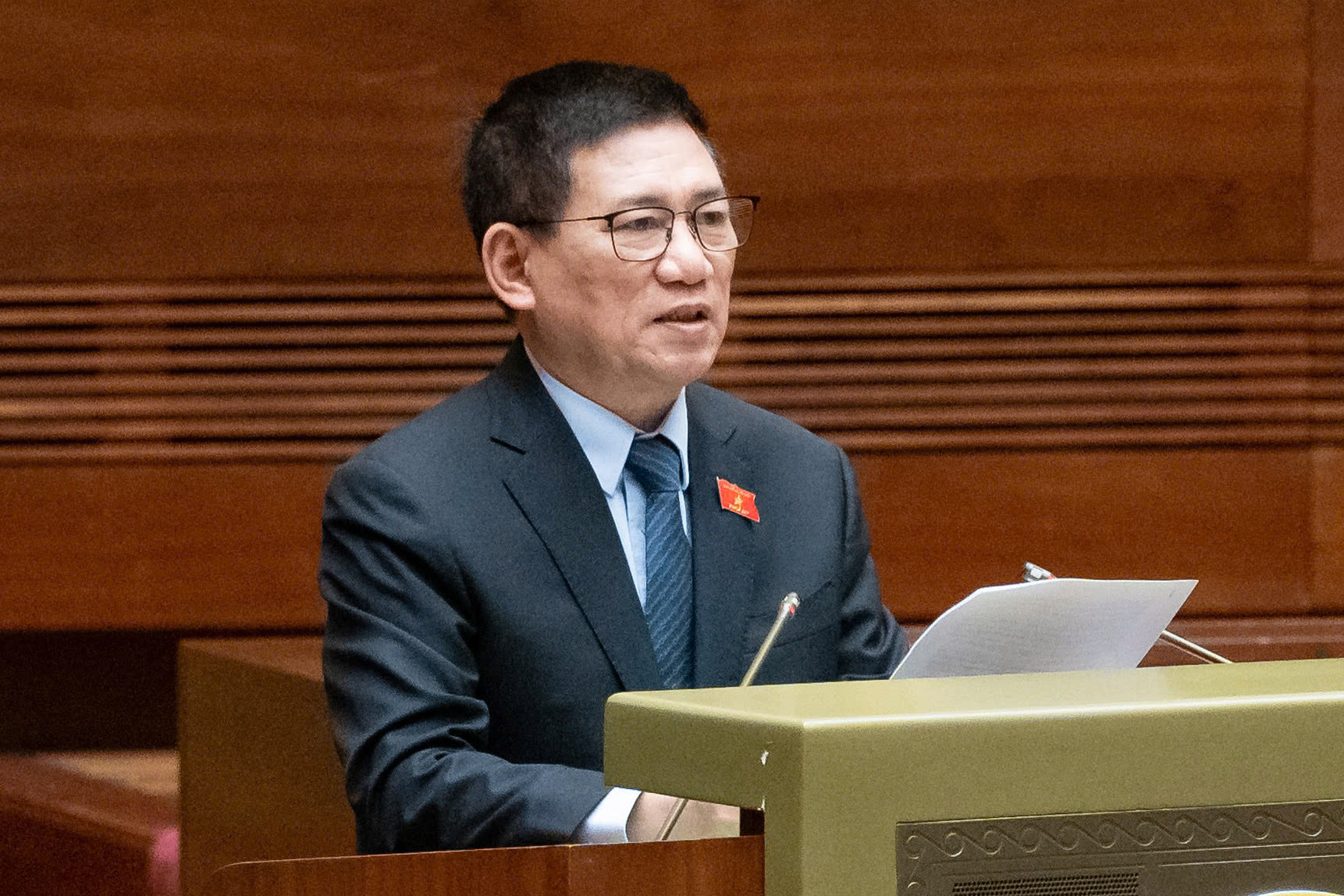A longstanding bottleneck
To summarize the core issue, Article 6, Clause 1 of the Public Investment Law stipulates that all new construction, renovation, expansion, procurement, and repairs of assets must use public investment funds. This provision has created overlap with the State Budget Law, which governs routine expenditure on asset procurement and maintenance.
For years, this discrepancy has stalled activities across numerous public agencies. Addressing the National Assembly, Phoc highlighted a case during his visit to the German Embassy, where he learned that due to the Public Investment Law’s medium-term budget constraints, the embassy had been unable to fund a perimeter fence. “This is a reality,” he said.
He explained that the Ministry of Finance had submitted proposed amendments three times. “One proposal went to the government but lacked consensus, so it was not presented to the National Assembly Standing Committee. Twice we submitted amendments following legal protocols, but they were not presented to the Assembly either,” he noted.
For years, public spending issues related to overlapping budgetary provisions were repeatedly raised by delegates, including Tran Huu Hau (Tay Ninh). “This is not just my opinion but reflects the consensus of many local and national leaders. As I have said multiple times, this situation is a major factor behind officials’ reluctance to carry out essential work,” Hau stated.
A breakthrough
Nearly a year after the heated National Assembly session, the government issued Decree 138/2024/ND-CP on October 24, confirming that budget allocations, expenditures, and reconciliation of routine expenditures must comply with Article 4, Clause 6 of the State Budget Law.
This decree allows embassies like the one in Germany to use routine funds for projects like perimeter fences, removing the need for multi-year inclusion in public investment plans.
This outcome is the result of persistent work by Phoc and numerous Finance Ministry officials. The change benefits a vast range of public entities, from government agencies and political institutions to public service providers and related organizations.
The public investment regulations themselves had originally been established to curb Vietnam’s overreliance on extensive public projects over a decade ago. Excessive decentralization had led to a flood of projects that exceeded the state’s fiscal capacity, resulting in inefficient, prolonged, and fragmented projects.
In response, the government at the time issued Directive 1792 on public investment, followed by the Public Investment Law, which helped rein in dispersed, unaccountable spending.
The current session of the National Assembly is set to review proposed amendments to the Public Investment Law, with the Ministry of Planning and Investment indicating that these amendments will align project-related spending with specialized legal frameworks.
A significant milestone has been achieved in addressing regulatory bottlenecks, partly due to the persistence of Finance Minister Phoc, who, interestingly, does not oversee investment-related matters.
During the National Assembly's opening session on October 21, both General Secretary To Lam and National Assembly Chairman Tran Thanh Man emphasized the need to reform legislative thinking to enable effective governance while unlocking resources for development. This directive aims to dismantle existing bottlenecks and pave the way for a modernized institutional framework to support Vietnam’s development.
Removing this initial bottleneck offers hope for further breakthroughs in the coming years.
Tu Giang
